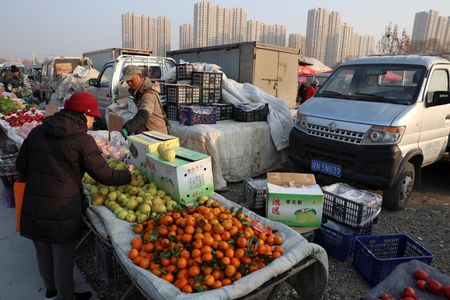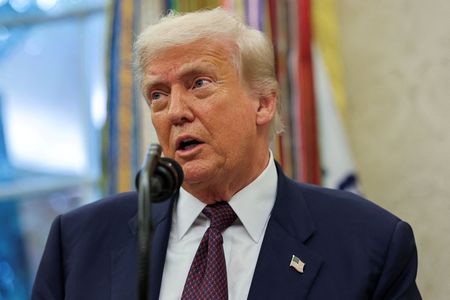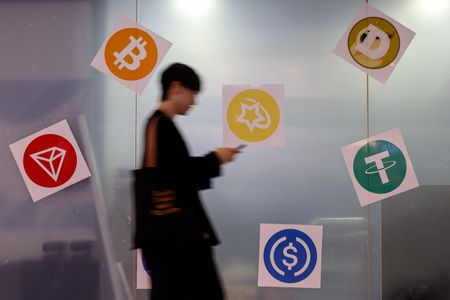By Joyce Lee and Jihoon Lee
SEOUL (Reuters) -South Korea’s parliament approved a supplementary government budget on Thursday of 13.8 trillion won ($9.7 billion) to bolster an economy grappling with weak domestic demand and the potential impact of U.S. tariffs.
Leaders of the Democratic Party and the People Power Party had agreed earlier on Thursday to the supplementary budget, which was higher than the government’s proposal of 12.2 trillion won.
It included 200 billion won to support discounts on fresh produce and regions hit by wildfires, 400 billion won for regional vouchers, and 800 billion won for infrastructure construction.
Asia’s fourth-largest economy unexpectedly contracted in the first quarter, data showed last week, as exports and consumption stalled amid fears over the impact of Washington’s aggressive tariffs, reinforcing expectations of more interest rate cuts by the Bank of Korea.
Construction investment was the biggest drag, dropping 3.2% over the quarter.
When the government proposed the smaller extra budget of 12.2 trillion won earlier this month, it said its stance was flexible as the timing was important, though it also noted tight bond market conditions.
The left-leaning Democratic Party, which holds a majority in parliament, had argued for a bigger supplementary budget of as much as 35 trillion won and cash-like handouts to boost domestic demand.
Economists say there might be another supplementary government budget this year, depending on the outcome of the country’s snap presidential election on June 3.
South Korea’s central bank said last month this year’s economic growth forecast of 1.5% seen in February was likely to be downgraded at its next policy meeting in May. The International Monetary Fund recently cut its forecast for South Korea’s 2025 economic growth to 1%, from 2%.
($1 = 1,426.4300 won)
(Reporting by Joyce Lee and Jihoon Lee;Editing by Ed Davies and Emelia Sithole-Matarise)









